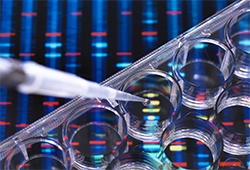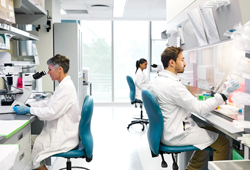Congress Expands Pathway for Drug & Device Manufacturers’ Pre-Approval Communication of Health Care Economic Information to Payors, Formularies, & Similar Entities

The legislation previously introduced as the Pre-Approval Information Exchange Act of 2022 (“PIE Act”) was passed as part of Congress’s December 23, 2022 omnibus spending bill. Once signed into law, this legislation will amend the Federal Food, Drug, and Cosmetic Act’s (FDCA’s) provisions on misbranded drugs and devices to formally allow drug and medical device manufacturers to proactively share investigational drug and device information, including health care economic information, with payors, health plans, formulary committees, and other similar entities prior to the clearance or approval of the drug or device or new use of the drug or device but with now-statutory strings attached.
The US Food and Drug Administration (FDA) has long had the authority to enforce against pre-approval promotional communications, and a pathway for pre-approval communication of health care economic information regarding the selection of drugs for coverage and reimbursement was enacted under the Food and Drug Administration Modernization Act of 1997. Current guidance from FDA, finalized in 2018, expressly permits drug and device companies to provide some details about investigational products or investigational uses of marketed products to payors, formulary committees, and similar entities prior to approval or clearance of the product or its new use; however, for device companies this has come in the form of non-binding guidance that lacks a formal anchor in the statutory language. The inclusion of the legislation previously known as the PIE Act in the omnibus spending bill formally establishes a statutory pathway built on FDA’s 2018 final guidance for both drug and medical device companies to engage in pre-market communications about health care economic information with payors, formulary committees, and similar entities.
Read the client alert here.
 The U.S. Food and Drug Administration’s (“FDA” or “the Agency”) Center for Devices and Radiological Health (“CDRH”) recently announced the launch of its Total Product Life Cycle Advisory Program (“TAP”) Pilot. The first phase of this voluntary initiative, called TAP Pilot Soft Launch, will be conducted during fiscal year (“FY”) 2023 with enrollment beginning on January 1, 2023.
The U.S. Food and Drug Administration’s (“FDA” or “the Agency”) Center for Devices and Radiological Health (“CDRH”) recently announced the launch of its Total Product Life Cycle Advisory Program (“TAP”) Pilot. The first phase of this voluntary initiative, called TAP Pilot Soft Launch, will be conducted during fiscal year (“FY”) 2023 with enrollment beginning on January 1, 2023. On September 28, 2022, the U.S. Food and Drug Administration (“FDA” or “the Agency”) issued its long-awaited final guidance, “Clinical Decision Support Software” (the “CDS Guidance”). The CDS Guidance follows the Agency’s September 2019 draft guidance of the same name (the “Draft Guidance”) and seeks to clarify several key concepts for determining whether clinical decision support (“CDS”) software is a medical device.
On September 28, 2022, the U.S. Food and Drug Administration (“FDA” or “the Agency”) issued its long-awaited final guidance, “Clinical Decision Support Software” (the “CDS Guidance”). The CDS Guidance follows the Agency’s September 2019 draft guidance of the same name (the “Draft Guidance”) and seeks to clarify several key concepts for determining whether clinical decision support (“CDS”) software is a medical device.


 On December 27, 2020, the President signed into law the “Consolidated Appropriations Act, 2021” (the “Act”). Included within this omnibus legislation are several provisions (in Division BB, Title III, Subtitle C) that affect the regulation of generic drugs and biosimilar medicines by the U.S. Food and Drug Administration (FDA).
On December 27, 2020, the President signed into law the “Consolidated Appropriations Act, 2021” (the “Act”). Included within this omnibus legislation are several provisions (in Division BB, Title III, Subtitle C) that affect the regulation of generic drugs and biosimilar medicines by the U.S. Food and Drug Administration (FDA). As the COVID-19 pandemic unfolds, our drug, biologic, and medical device clients conducting or planning to conduct clinical trials may be faced with challenges related to quarantines, travel limitations, site closures or access restrictions, infection transmission concerns of site research personnel and study subjects, and supply chain interruptions. Nonetheless, it remains critical during the COVID-19 pandemic to continue to assure the safety of trial participants, comply with good clinical practice (GCP) requirements, and minimize risks to trial integrity. In this client alert which follows our earlier article on product development considerations for COVID-19 and article on FDA scrutiny of COVID-19 medical product marketing, we briefly discuss the impact the COVID-19 pandemic may have on our life sciences clients, and we provide an overview of FDA’s “Guidance on Conduct of Clinical Trials of Medical Products during COVID-19 Pandemic” issued on March 18, 2020.
As the COVID-19 pandemic unfolds, our drug, biologic, and medical device clients conducting or planning to conduct clinical trials may be faced with challenges related to quarantines, travel limitations, site closures or access restrictions, infection transmission concerns of site research personnel and study subjects, and supply chain interruptions. Nonetheless, it remains critical during the COVID-19 pandemic to continue to assure the safety of trial participants, comply with good clinical practice (GCP) requirements, and minimize risks to trial integrity. In this client alert which follows our earlier article on product development considerations for COVID-19 and article on FDA scrutiny of COVID-19 medical product marketing, we briefly discuss the impact the COVID-19 pandemic may have on our life sciences clients, and we provide an overview of FDA’s “Guidance on Conduct of Clinical Trials of Medical Products during COVID-19 Pandemic” issued on March 18, 2020. Because life sciences companies hope to never end up on clinical hold, preparing for such a call from the U.S. Food and Drug Administration (FDA) is often not on the to-do list. But there can be significant advantages to advance preparation. Our Goodwin Insight shares some tips for life sciences companies on navigating that first call with FDA and the actions that follow.
Because life sciences companies hope to never end up on clinical hold, preparing for such a call from the U.S. Food and Drug Administration (FDA) is often not on the to-do list. But there can be significant advantages to advance preparation. Our Goodwin Insight shares some tips for life sciences companies on navigating that first call with FDA and the actions that follow.